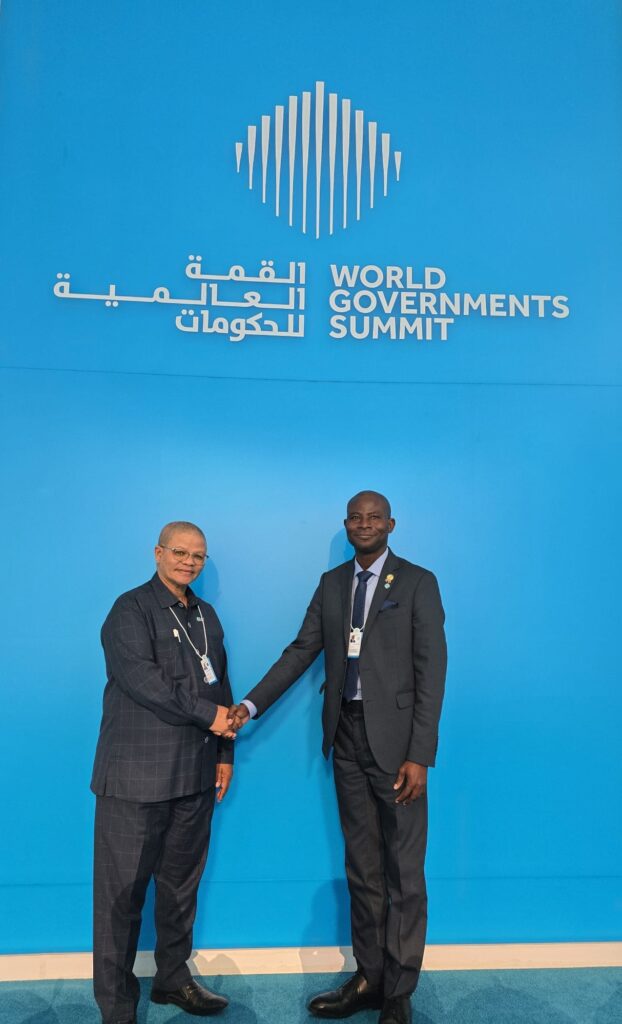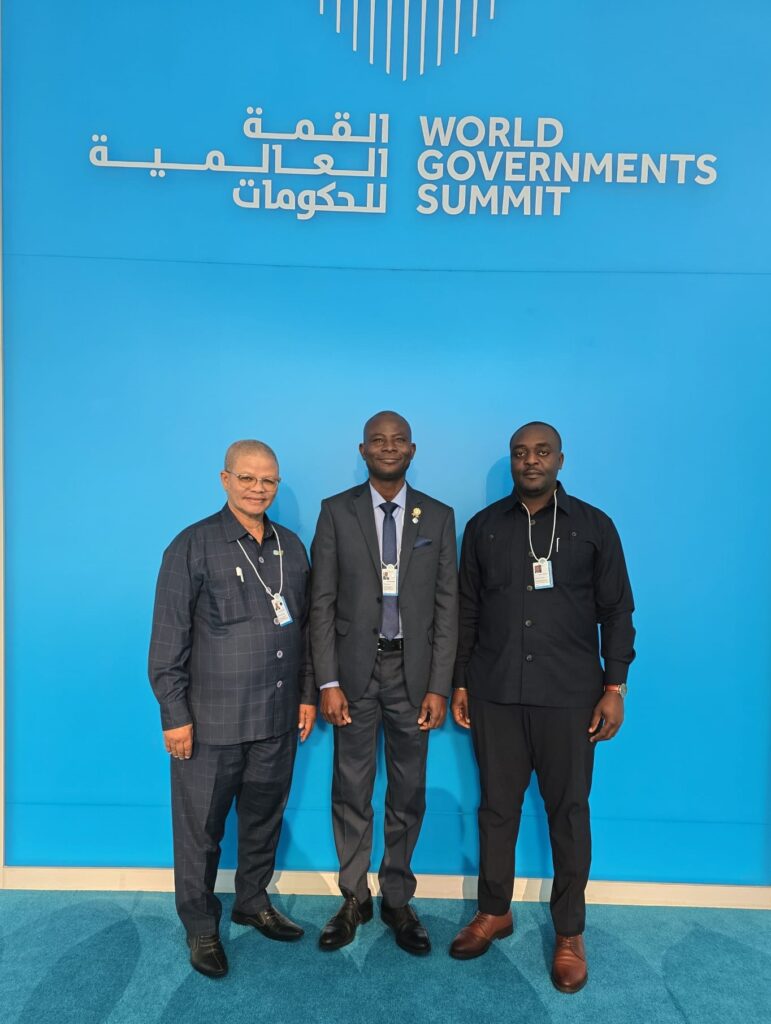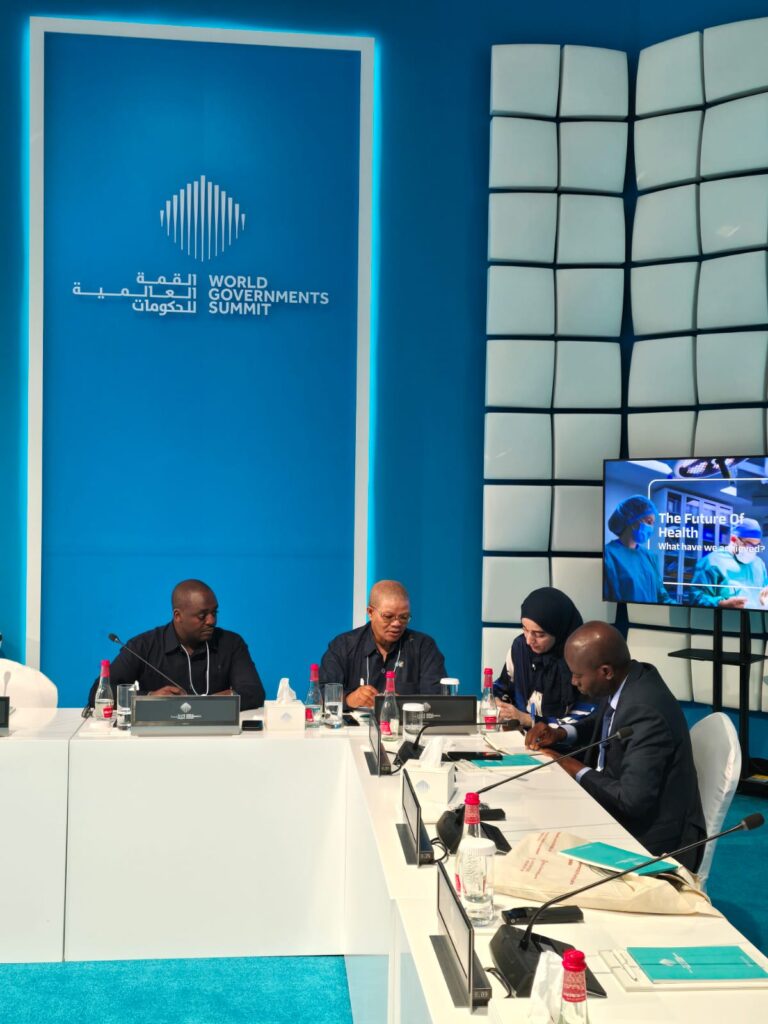CAFRAD and Namibia are undertaking joint initiatives to promote training in public administration.

Dubai, February 13, 2025 – On the sidelines of the 2025 World Government Summit (WGS), held in Dubai, United Arab Emirates, from February 11 to 13, the Director General of CAFRAD, Dr. Coffi Dieudonné, and the Deputy Director of the Ministry of Foreign Affairs, Mr. Salmaan D. Jacobs, held a high-level meeting. This meeting served as an opportunity to explore potential avenues of collaboration in the areas of public administration training and capacity building, within a shared commitment to strengthening cooperation and synergies between their institutions.
The substantive discussions between the two diplomatic officials addressed several strategic areas, including:
- The development of a roster of senior officials interested in joining CAFRAD’s group of experts, with a view to actively contributing to the training programs administered by the Pan-African intergovernmental organisation;
- The establishment of partnerships with schools and institutes specialising in public administration;
- Capacity-building initiatives in Namibia, with particular emphasis on identifying training needs to effectively support the implementation of CAFRAD’s strategic roadmap.
- The possibility of establishing contact with NIPAM (Namibia Institute of Public Administration and Management), a training institute in Namibia, with a view to developing a potential partnership with CAFRAD in the areas of training, capacity building, and reform programs;
- The establishment of a committee of schools and training institutes in Namibia, representing Anglophone countries, aims to genuinely address their needs and aspirations and ensure active engagement with their concerns. This represents a strong commitment to a shared future.
- The commitment to fostering the sharing of collaborative needs and identifying essential training for institutes, through research and interdisciplinary training activities grounded in contemporary realities and aligned with strategic opportunities for the development of African countries;
- The establishment of an effective governance system at all levels in the era of the Fifth Industrial Revolution (5.0), along with the enhancement of digital governance, to support governments in their transition toward digitalisation, artificial intelligence, and administrative and institutional reforms;
- Integrating the challenges of inclusion and resilience to ensure sustainable and equitable development in the context of transformational shifts;

The discussions focused on establishing strong partnerships and leveraging opportunities that this collaboration could offer, particularly in governance, training, and human and institutional capacity building.
At the conclusion of the meeting, both parties agreed to continue their bilateral collaboration to serve the interests of the African continent. This mutual commitment reflects their shared determination to strengthen African states’ administrative and institutional capacities, building on successful initiatives and concrete actions.





